
GHSCO Newsletter
September 2025
Volume2 Number3
Partner Stories1
Strengthening Health Adaptation Project (SHAPE): Responding to Climate Change in Fiji
Dr. Daniel Faktaufon
Principal Medical Officer
Health Protection Division
Ministry of Health and Medical Services
The Fiji Centre for Communicable Disease Control (FCCDC), formerly known as the National Public Health Laboratory (NPHL), has been a cornerstone of Fiji’s public health system since its establishment in 1965 with support from the Wellcome Trust. In 1999, it was reorganized as the FCCDC, and in 2020 it was further strengthened and renamed as the Fiji Centre for Disease Control (Fiji CDC) to align with international standards and enhance public health interventions and responses.
The Korea International Cooperation Agency (KOICA) funded the Strengthening Health Adaptation Project to Engage with Climate Change in Fiji (SHAPE), a partnership between KOICA, the Fiji Ministry of Health and Medical Services (MHMS), and the World Health Organization (WHO). The SHAPE project aims to bolster Fiji’s health security by strengthening public health surveillance and laboratory diagnostic capacities, particularly for epidemic-prone diseases.
Strengthening Communicable Disease Surveillance Systems
The SHAPE’s first strategic priority area 1 focuses on reforming public health services to adopt a population-based approach to disease control in the context of the climate crisis, with its main outcome being a reduction in the prevalence of communicable and non-communicable diseases, especially among vulnerable populations. A key initiative under this priority is strengthening Fiji’s communicable disease surveillance through the review, reform and digitalization of the National Notifiable Disease Surveillance System (NNDSS). This includes web-based reporting and enhanced data management systems to improve vigilance and data quality.
Capacity Building for Surveillance, Case Detection, and Diagnosis of Communicable and Neglected Tropical Diseases
Since the launch of SHAPE, the project has supported the Fiji CDC’s Annual Divisional Outbreak Response Team (DORT) training across all four divisions. Conducted ahead of the cyclone season, this training prepares teams for heavy rains and other severe weather events, which can increase the incidence of communicable diseases. The DORT training strengthens capacity for infectious disease surveillance, laboratory investigations, integrated outbreak response, clinical management, and risk communication at both divisional and sub-divisional levels—a strategic investment for improving public health responses to climate-sensitive outbreaks.
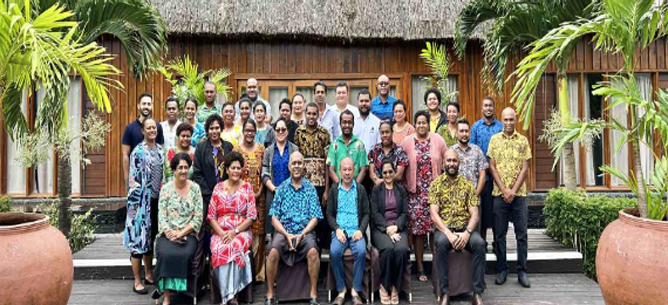 Participants from the Northern Division MHMS attending the DORT training in 2023
Participants from the Northern Division MHMS attending the DORT training in 2023
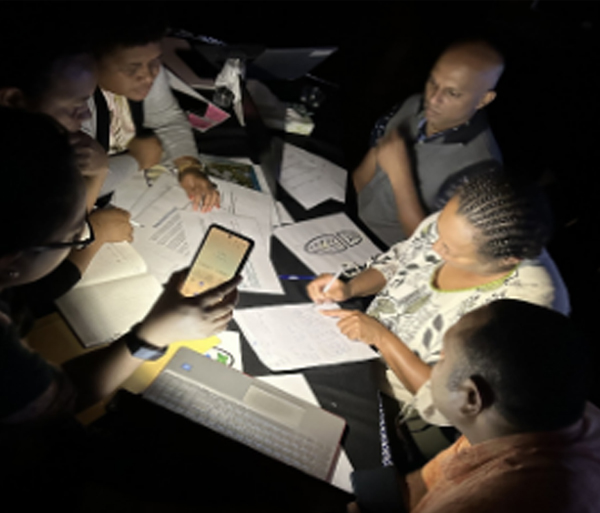
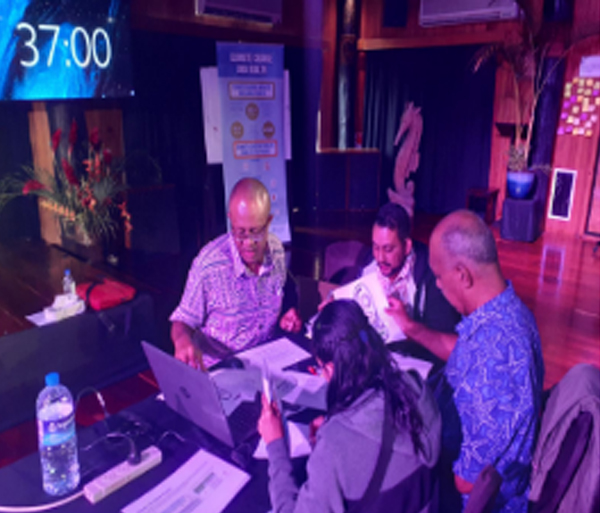
Participants engaging in the Escape Room activity while working on data cleaning and analysis
Strengthening Laboratory Testing Capacity
Another key outcome of SHAPE under the first priority is the enhancement of diagnostic capacities in health facilities, including the renovation and establishment of Food, Water, and Leptospirosis Microscopic Agglutination Tests (MAT) testing at the Fiji CDC. The project has provided appropriate laboratory technologies and training to enable confirmatory diagnosis of priority climate-sensitive diseases such as water-borne diseases (e.g. leptospirosis) and emerging infectious diseases. The establishment and implementation of Leptospirosis MAT infrastructure with confirmatory testing will be the first of its kind in Fiji.
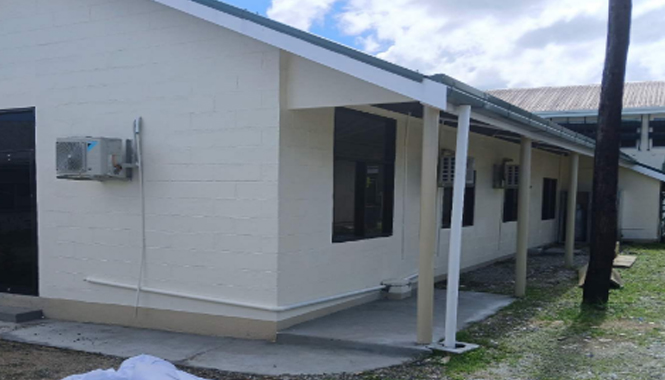
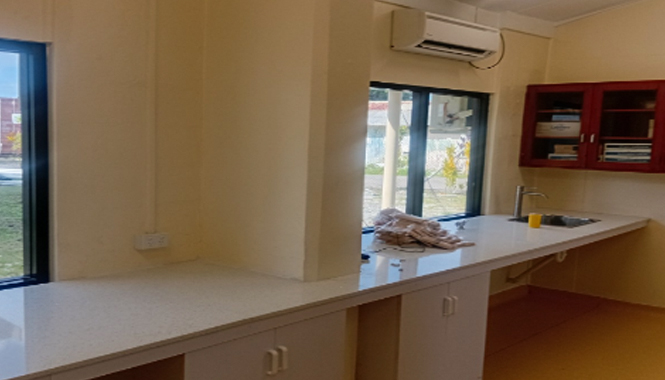 Renovations supported by the KOICA SHAPE project for the Food, Water, and Leptospirosis MAT Laboratory at the Fiji CDC
Renovations supported by the KOICA SHAPE project for the Food, Water, and Leptospirosis MAT Laboratory at the Fiji CDC
The Impact
Through the KOICA SHAPE project, Fiji has seen a reduction in turnaround time for the detection and confirmation of epidemic-prone diseases and improved coordination between surveillance and laboratory teams for faster outbreak response. Additionally, the project has strengthened Fiji’s contribution to regional epidemic intelligence sharing through surveillance networks. SHAPE’s support has been pivotal in modernizing Fiji’s surveillance systems and laboratory testing capacities, equipping the country to more effectively detect, respond to, and manage outbreaks both nationally and across the Pacific region.
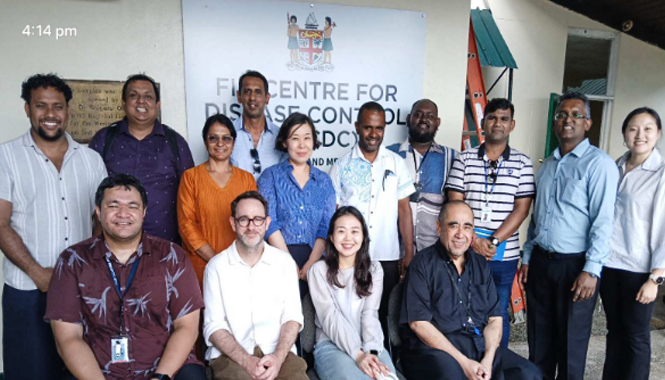 Representative from WHO, KOICA and the Fiji Ministry of Health and Medical services during a site inspection of the Food Water and Leptospirosis MAT Laboratory in Fiji CDC
Representative from WHO, KOICA and the Fiji Ministry of Health and Medical services during a site inspection of the Food Water and Leptospirosis MAT Laboratory in Fiji CDC